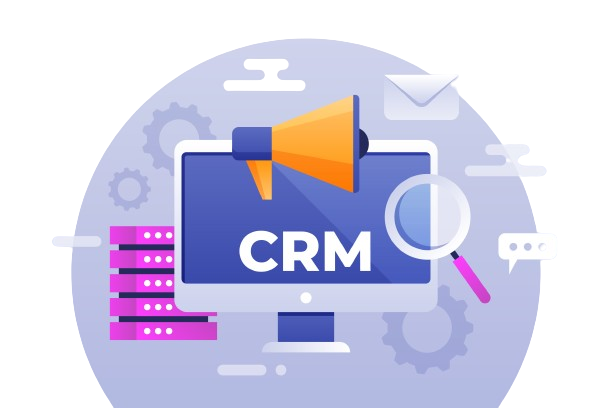
In the dynamic landscape of business, where competition is fierce and consumer expectations are ever-evolving, the role of Customer Relationship Management (CRM) software has become paramount. CRM software is helping today’s businesses in not only attracting new customers but retaining and nurturing existing ones as well. So, let’s delve into the transformative power of the best CRM software and outline four practical steps that can help your business build and enhance customer loyalty. But before that let’s explore what CRM is.
Understanding the Essence of CRM
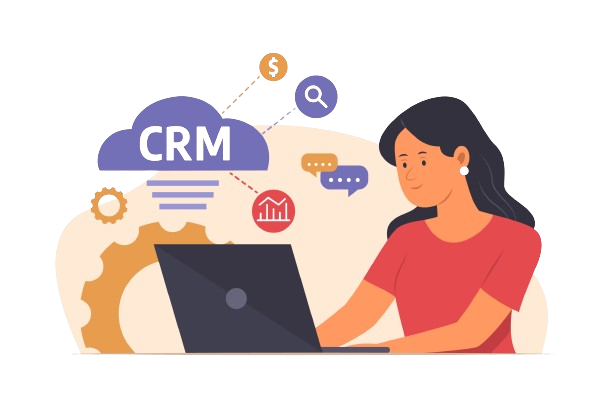
In the fast-paced realm of modern business, where customer relationships can make or break a company, CRM software has emerged as the strategic heartbeat that fuels success. At its core, CRM software is not just a software or a tool; it’s a holistic approach that transcends transactional exchanges. It represents a commitment to understanding, engaging, and nurturing relationships with customers at every touchpoint along their journey. At its simplest, CRM involves the systematic management of your company’s interactions with both current and potential customers. It’s a dynamic framework that blends technology with human intuition and helps in creating lasting connections rather than one-time transactions. CRM software also extends far beyond basic demographic data, it dives into the intricacies of customer needs, preferences, and behaviors.
Imagine CRM as the conductor that orchestrates a symphony of customer interactions. By centralizing your data from various channels like sales and marketing to customer service it creates a unified, 360-degree view of each customer. This panoramic perspective in return can empower your teams to anticipate customer needs, tailor experiences, and deliver personalized interactions that resonate on an individual level.
But remember, implementing CRM involves deploying software that not only acts as a repository for customer information but serves as a command center for actionable insights as well. This amalgamation of data and insights can allow you to move beyond generic marketing messages and embark on the journey of personalization. CRM software can also enable you to treat your customers as unique entities and tailor your communication strategies and offerings to match their preferences and behaviors. Furthermore, CRM software also transforms customer service from a reactive function to a proactive strategy. By integrating with customer service tools, CRM software ensures that every interaction is informed by the latest customer data, to help you provide quicker and more accurate issue resolutions. It also streamlines processes, automates repetitive tasks, and creates a seamless experience that can strengthen your relationship with your customers.
In essence, CRM software is the compass that can guide you through the complex terrain of customer relationships, as it is the tool that empowers companies to not only meet but exceed customer expectations.
Now that you have a clear understanding of what CRM software is, let’s take a look at the four practical steps that can help you in building and enhancing customer loyalty for your business with the help of CRM software.
How to Transform Customer Loyalty in Four Practical Steps
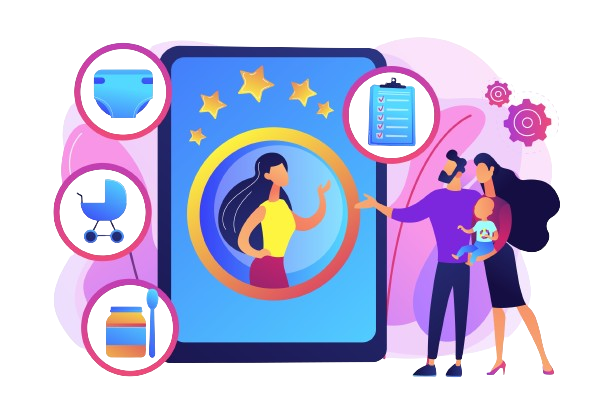
Here are the four practical steps with the help of which you can achieve and enhance customer loyalty by using CRM software:
- Know Your Customers Inside Out
In the quest for customer loyalty, the first practical step is to know your customers inside out. Implementing CRM software lays the groundwork for this transformative journey. By utilizing the data management capabilities of CRM, you can systematically collect and centralize a wealth of customer information. This includes not only basic demographics but nuanced details such as purchase history, communication preferences, and customer feedback as well. The ability to consolidate this data in a centralized system can eliminate silos in your workflow, and provide a comprehensive and up-to-date view of each customer. This foundational step can also enable you to move beyond assumptions and make informed decisions based on real customer insights. In the pursuit of knowing your customers inside out with the help of CRM software to enhance customer loyalty, you can:
- Craft Personalized Interactions
Armed with a deep understanding of customers, the next step is personalization at scale. CRM software empowers businesses to tailor their interactions with customers and helps them create a personalized experience that goes beyond generic marketing efforts. The software’s analytics capabilities can allow businesses like yours to identify patterns and preferences, and enable targeted marketing campaigns, personalized promotions, and even individualized product recommendations.
Imagine sending an email that not only addresses the customer by name but also suggests your products based on their past purchases. This level of personalization can create a connection, and make your customers feel seen and valued, which in the competitive landscape, can prove to be a powerful tool for not only attracting but retaining your customers.
- Strengthen Customer Service
Customer loyalty is often cemented in the crucible of customer service and a CRM software helps you with just that. By integrating CRM software with your customer service tools, you can ensure that your support representatives have access to the most relevant customer information in real time. This integration can streamline issue resolution, by giving your customer service representatives a comprehensive understanding of each customer’s history and preferences. Besides, the automation features within CRM software can also play a role in expediting your ticketing systems and follow-up communications, and demonstrate your commitment to efficiency and customer satisfaction.
- Leverage CRM for Continuous Improvement
Customer feedback is a vital component of the loyalty-building process and you can achieve that with the help of CRM software. CRM software facilitates the systematic collection and analysis of customer feedback, meaning it can provide you with actionable insights for continuous improvement. So, either through surveys, feedback forms, or social media monitoring, you can leverage CRM software to gather valuable information on customer sentiments.
The integration of customer feedback into the CRM software also creates a feedback loop, where insights are not just collected but actively helps its users refine products, services, and overall customer experiences. With this iterative process, you can show your customers that their opinions matter and foster a sense of partnership to their loyalty with your brand
2. Personalization at Scale
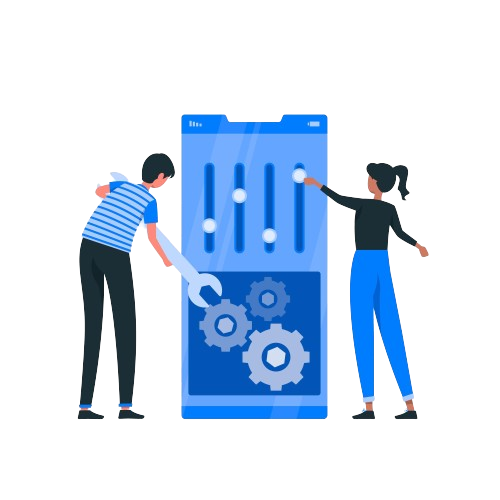
The practical step of “personalization at scale” is a pivotal strategy that can significantly help you in achieving and enhancing customer loyalty through the implementation of CRM software. This step revolves around leveraging the insights and capabilities of CRM systems to understand individual customer preferences on a granular level. Here’s how a CRM software can help you in personalizing your products and offerings for transforming customer loyalty:
- Tailoring Marketing Efforts
One of the key ways CRM software facilitates personalization at scale is through tailoring marketing efforts. By analyzing data collected through various touchpoints, you can create highly targeted and relevant marketing campaigns. CRM software also allows for segmentation based on customer demographics, behaviors, and preferences, and with this segmentation you can send personalized messages, offers, and promotions to specific customer groups, while increasing the likelihood of resonating with their interests.
Imagine a scenario where a customer receives an email containing recommendations for products they are genuinely interested in, based on their previous purchases or browsing history. This level of precision in communication can not only capture attention but cultivate a sense of being understood, fostering a deeper connection and loyalty as well.
- Providing Customized Product Recommendations
CRM software also empowers businesses to go beyond traditional marketing approaches by offering customized product recommendations. By analyzing customer behaviors and purchase history, CRM software can predict and suggest products that align with individual preferences. With this tailored approach you can seamlessly enhance the shopping experience of your customers and make it more enjoyable and convenient for them.
For instance, you might showcase personalized product recommendations on a customer’s homepage to create a curated shopping experience, which can not only increase the likelihood of additional purchases but demonstrate your commitment towards understanding and catering to the unique preferences of each customer as well.
- Adaptive Customer Journeys
Personalization at scale extends beyond individual transactions; it encompasses the entire customer journey and with CRM software you can achieve just that. CRM software allows businesses to create adaptive customer journeys that evolve based on customer interactions and behaviors. Thus, by utilizing automation and predictive analytics of CRM software you can deliver timely and relevant content at different stages of the customer lifecycle.
Besides, as CRM software can meticulously analyze a customer’s behavior, you can use these insights to automatically recommend products and services aligned with your user’s preferences, to create a seamless and personalized experience. This adaptability can not only enhance your customer’s satisfaction in the short term but contribute to long-term loyalty by consistently delivering value as well.
3. Streamlining Customer Service

The practical step of streamlining customer service, when executed with the aid of CRM software, becomes a cornerstone in achieving and enhancing customer loyalty. At the heart of this approach lies the seamless access and integration of customer information. CRM software acts as a central hub where data from various customer touchpoints is collected, organized, and made readily accessible to customer service representatives.
By integrating CRM software with your customer service tools, you can ensure that your support teams have real-time access to the most up-to-date and relevant customer data. This integration can eradicate the need for manual data searches across disparate systems while enabling your customer service representatives to provide faster and more accurate assistance. So, when a customer reaches out for support, whether through phone, email, or chat, your representative can access a comprehensive view of the customer’s history, preferences, and previous interactions, to facilitate a more informed and personalized service. Here’s how with CRM software you can streamline your customer service:
- Efficient Ticketing Systems
One of the key features of CRM software in streamlining customer service is the implementation of efficient ticketing systems. When customers raise concerns or issues, these are logged into the CRM system, which creates a streamlined and organized workflow for your customer service team. Besides, the automation features within the CRM software can assign and prioritize tickets based on predefined criteria, which can ensure that urgent matters are addressed promptly.
This automation can not only expedite issue resolution but minimizes the risk of oversights as well. Thus, allowing your teams to cater to track and manage each customer’s concerns systematically, and preventing cases from slipping through the cracks. This can result in enhancing your customer service process by making it not only efficient but reliable as well, which can contribute to a positive customer experience and reinforce loyalty.
- Tailor Interactions to Customer Needs
CRM software can facilitate the delivery of personalized support by enabling your customer service representatives to tailor interactions based on individual customer needs. Armed with a comprehensive view of each customer’s history and preferences, your representatives can engage in conversations that are not only solution-oriented but empathetic and personalized as well.
For example, if a customer has previously encountered a specific issue, the CRM software will highlight this information for your customer service representative, which can allow your representative to acknowledge the customer’s history, demonstrate understanding of their situation, and provide a solution that is tailored to their needs. With this personalized support, you can create a positive emotional connection, and foster a sense of being valued and understood, which is a fundamental building block of customer loyalty.
- Anticipate and Address Needs
CRM software empowers businesses to move beyond reactive customer service to a proactive model. By analyzing customer data, CRM software can predict potential issues or needs, which can allow you to address them before they escalate. For instance, if a customer’s purchase history indicates a pattern of product upgrades, your teams can initiate proactive communication to offer information about your latest products or exclusive upgrade offers. This proactive approach can not only demonstrate your attentiveness but add an anticipatory element to customer service as well, which can help you exceed customer expectations. Besides, when customers experience proactive and personalized support, they are more likely to perceive your business as responsive and customer-centric, which in return can solidify their loyalty.
4. Building Loyalty Through Feedback
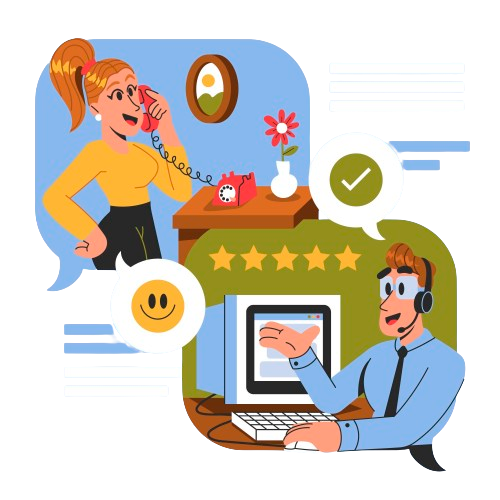
The practical step of Building Loyalty Through Feedback, when integrated with CRM software, emerges as a strategic approach to not only gather valuable insights but actively engage customers in the improvement process as well. The first crucial aspect of this step involves the systematic collection of feedback. CRM software provides a structured platform with which you can implement surveys, feedback forms, and monitor mechanisms across various customer touch points.
By centralizing feedback within the CRM software, you can ensure that all relevant data is captured, avoiding the fragmentation of feedback across different channels. This comprehensive approach can ultimately help you achieve a holistic understanding of customer sentiments, preferences, and areas that require improvement. Here’s how CRM software can help you build loyalty through feedback for transforming customer loyalty:
- Turning Data into Actionable Insights
CRM software goes beyond being a repository for feedback; it becomes a dynamic tool for transforming your raw data into actionable insights. Through analytics features, you can analyze customer sentiments and identify patterns and trends that may not be immediately apparent. This analytical capability is crucial in discerning the underlying factors that contribute to customer satisfaction or dissatisfaction.
For example, if feedback consistently highlights a specific aspect of a product or service as a pain point, CRM analytics can pinpoint the exact nature of the issue. Armed with this information, you can initiate targeted improvements, demonstrate a commitment to addressing customer concerns, and build loyalty through continuous enhancement.
- Closing the Feedback Loop
One of the distinctive features of leveraging CRM software for building loyalty through feedback is its ability to close the feedback loop effectively. CRM software can enable you to respond promptly and personally to customer feedback, turning your feedback process into a dynamic conversation. Whether positive or negative, you can acknowledge customer feedback and demonstrate responsiveness and a commitment to customer satisfaction.
For instance, if a customer provides feedback about a suboptimal experience with a product, CRM software can trigger an automated response acknowledging the feedback and providing information on how the issue will be addressed. This proactive engagement can not only help you reassure the customer but transform a potentially negative experience into an opportunity to showcase your business’s dedication to improvement.
- Tailoring Offerings Based on Feedback
CRM software becomes a strategic ally in tailoring your offerings based on customer feedback. By analyzing feedback data, you can identify areas where customization or personalization is warranted. This could involve refining product features, enhancing service delivery, or even creating personalized promotions based on specific customer preferences.
Consider a scenario where a restaurant uses CRM to collect feedback on customer dining experiences. If a recurring theme in the feedback is a desire for more vegetarian options, the restaurant can use this information to revamp its menu, catering to the preferences of its customer base. This can not only demonstrate attentiveness of the business but contribute to a customer-centric approach that fosters loyalty as well.
Conclusion
In conclusion, the power of CRM software in transforming customer loyalty cannot be overstated. From understanding customers on a granular level to personalizing interactions, streamlining customer service, and leveraging feedback for continuous improvement – CRM software is a comprehensive strategy that can align your business processes with customer expectations.
As you navigate the intricacies of the modern marketplace, implementing a robust CRM solution is not just an option; it’s a necessity. The steps outlined in this blog provide a practical roadmap for businesses looking to harness the power of CRM software and build lasting relationships with their customers. In the age of customer-centricity, CRM software is the linchpin that can turn satisfied customers into loyal advocates, ultimately driving sustained success in a competitive business landscape.